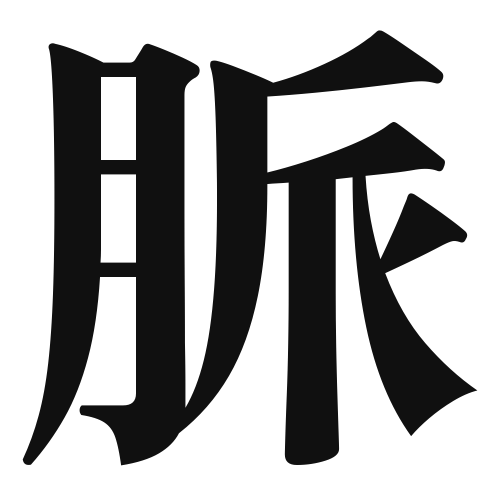1. Overview of Meaning
The kanji “脈” (myaku) primarily means “pulse” or “vein.” It refers to the rhythmic beating of the heart or the flow of blood through veins, symbolizing life and vitality.
2. Formation and Radical
The kanji “脈” is a compound character (会意文字) that combines the elements of “肉” (niku), meaning “flesh,” and “目” (me), meaning “eye.” This combination suggests the idea of something vital and alive, as it relates to the body.
The radical of “脈” is “肉” (niku), which is often associated with body parts and flesh-related meanings.
3. Examples of Usage
Common words and phrases that include “脈” are:
- 脈拍 (myakuhaku) – pulse rate
- 脈絡 (myakuraku) – context or connection
Example sentences in daily conversation:
- 「彼の脈拍は正常です。」(Kare no myakuhaku wa seijou desu.) – “His pulse rate is normal.”
- 「この話には脈絡がない。」(Kono hanashi ni wa myakuraku ga nai.) – “This story has no context.”
4. Synonyms and Antonyms
Similar kanji with related meanings include:
- 血 (chi) – blood, which refers specifically to the fluid in the body.
- 心拍 (shinpaku) – heart rate, which focuses on the heartbeat itself.
Antonyms include:
- 静 (shizu) – quiet or calm, which contrasts with the idea of a pulse or heartbeat.
5. Cultural and Historical Background
The kanji “脈” has significant relevance in Japanese culture, particularly in traditional medicine and practices that emphasize the importance of pulse and circulation for health.
Proverbs and idiomatic expressions include:
- 「脈がある」(myaku ga aru) – “to have a pulse,” meaning there is hope or potential in a situation.
